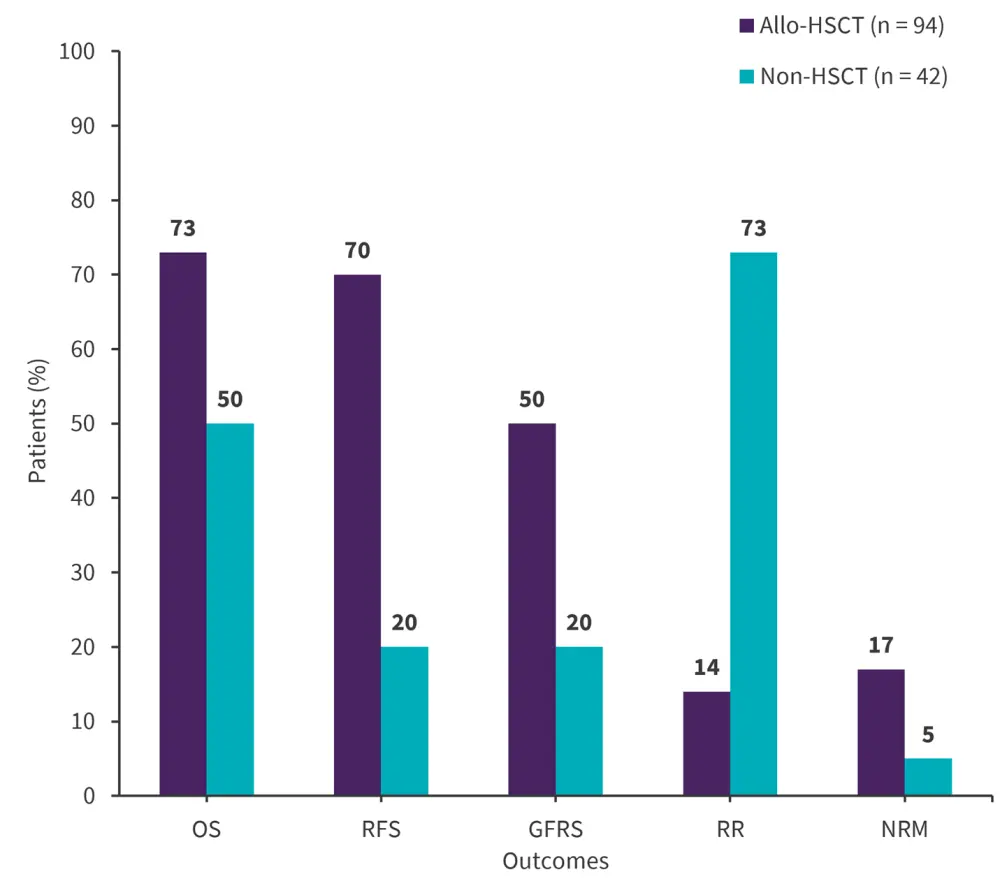All content on this site is intended for healthcare professionals only. By acknowledging this message and accessing the information on this website you are confirming that you are a Healthcare Professional. If you are a patient or carer, please visit Know ALL.
The all Hub website uses a third-party service provided by Google that dynamically translates web content. Translations are machine generated, so may not be an exact or complete translation, and the all Hub cannot guarantee the accuracy of translated content. The all and its employees will not be liable for any direct, indirect, or consequential damages (even if foreseeable) resulting from use of the Google Translate feature. For further support with Google Translate, visit Google Translate Help.
The ALL Hub is an independent medical education platform, sponsored by Amgen, Autolus, Jazz Pharmaceuticals, and Pfizer and supported through an educational grant from the Hippocrate Conference Institute, an association of the Servier Group. Funders are allowed no direct influence on our content. The levels of sponsorship listed are reflective of the amount of funding given. View funders.
Now you can support HCPs in making informed decisions for their patients
Your contribution helps us continuously deliver expertly curated content to HCPs worldwide. You will also have the opportunity to make a content suggestion for consideration and receive updates on the impact contributions are making to our content.
Find out more
Create an account and access these new features:
Bookmark content to read later
Select your specific areas of interest
View ALL content recommended for you
The role of allogeneic transplant in adults with Ph+ ALL in complete molecular remission
Allogeneic hematopoietic stem cell transplantation (allo-HSCT) has curative potential in patients with Philadelphia chromosome-positive acute lymphoblastic leukemia (Ph+ ALL). Moreover, the introduction of tyrosine kinase inhibitors (TKIs) has resulted in deep and durable remission with negative measurable residual disease. Although allo-HSCT has improved non-relapse mortality (NRM), it still occurs in a proportion of patients in complete remission, and its role in this setting is widely debated.1
Here, we summarize a retrospective study published by Nishiwaki et al.1 in the American Journal of Hematology comparing outcomes of patients with Ph+ ALL in complete molecular remission who received allo-HSCT vs no allo-HSCT in the first CR.
Study methods1
- This study included adult patients aged 15−64 years with newly-diagnosed Ph+ ALL who achieved complete molecular remission within 3 months of diagnosis.
- Patients were enrolled from three prospective studies (JALSG Ph+ALL202; Ph+ALL208 study; Ph+ALL213 study) conducted by the Japan Adult Leukemia Study Group.
- The key endpoints included the incidence of relapse and NRM, overall survival (OS), relapse-free survival (RFS), and graft-versus-host disease-free survival (GFRS).
Key findings1
- Of the 147 patients included in the analysis, 101 received allo-HSCT and 46 did not.
- Patients in the allo-HSCT vs the non-allo-HSCT cohort were younger (median age, 53 vs 58 years) and received more dasatinib as first-line TKI (40% vs 17%).
Univariate analysis
- The 5-year survival outcomes were significantly higher in the allo-HSCT vs non-HSCT cohort (OS, 73% vs 41%; p = 0.0004; RFS, 68% vs 30%; p < 0.0001).
- Chromosomal risk and TKI were associated with higher OS and RFS.
- Although the 5-year NRM was similar in both cohorts (17% vs 10%; p = 0.17), the 5-year relapse rate was significantly lower in the allo-HSCT vs non-HSCT cohort (17% vs 60%; p < 0.0001).
- The 5-year GFRS was 51% in the allo-HSCT cohort vs 30% in the non-HSCT cohort (p = 0.01).
Multivariate analysis
- Allo-HSCT was associated with higher OS (adjusted hazard ratio [aHR], 0.54; p = 0.04), RFS (aHR, 0.21; p < 0.001), and GFRS (aHR, 0.43; p = 0.002) compared with non-HSCT (Figure 1).
- White blood cell count, TKI, and chromosomal risk were also associated with higher OS and RFS.
- Allo-HSCT was associated with a lower relapse rate (aHR, 0.10; p < 0.001) but a higher NRM (aHR, 3.49; p = 0.03) compared with the non-HSCT cohort.
- The median time from diagnosis to relapse was longer in the allo-HSCT vs non-HSCT cohort (17.0 vs 8.8 months; p = 0.003).
Figure 1. 5-year outcomes in allo-HSCT vs non-HSCT cohort*

Allo-HSCT, allogeneic hematopoietic stem cell transplantation; GFRS, graft-versus-host disease-free survival; NRM, non-relapse mortality; OS, overall survival; RFS, relapse-free survival; RR, relapse rate
*Data from Nishiwaki, et al.1
| Key learnings |
|
References
Please indicate your level of agreement with the following statements:
The content was clear and easy to understand
The content addressed the learning objectives
The content was relevant to my practice
I will change my clinical practice as a result of this content


